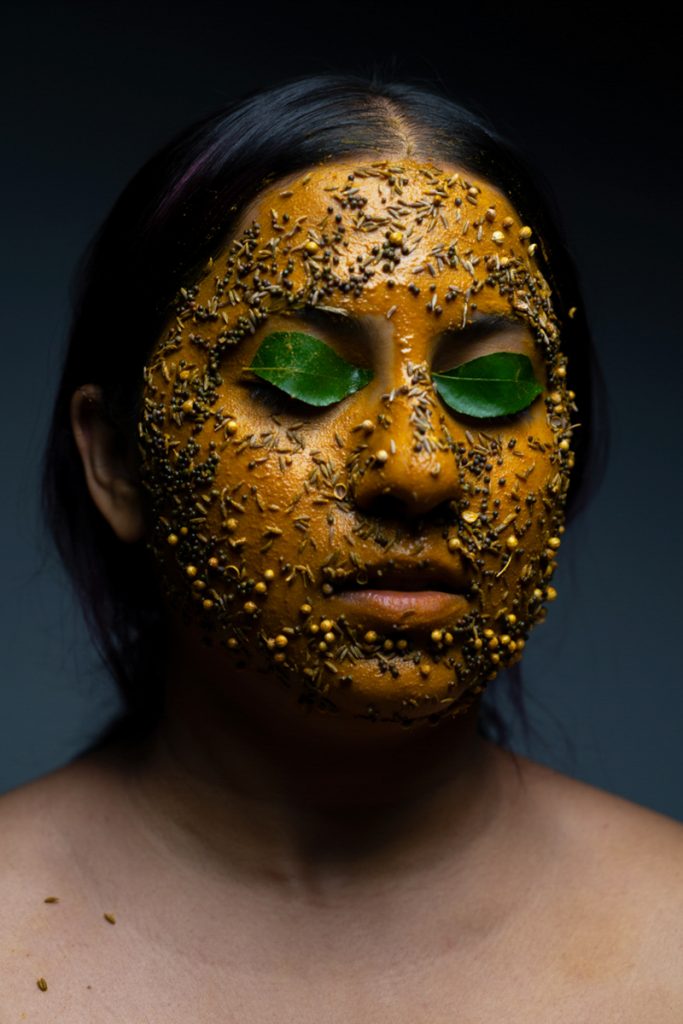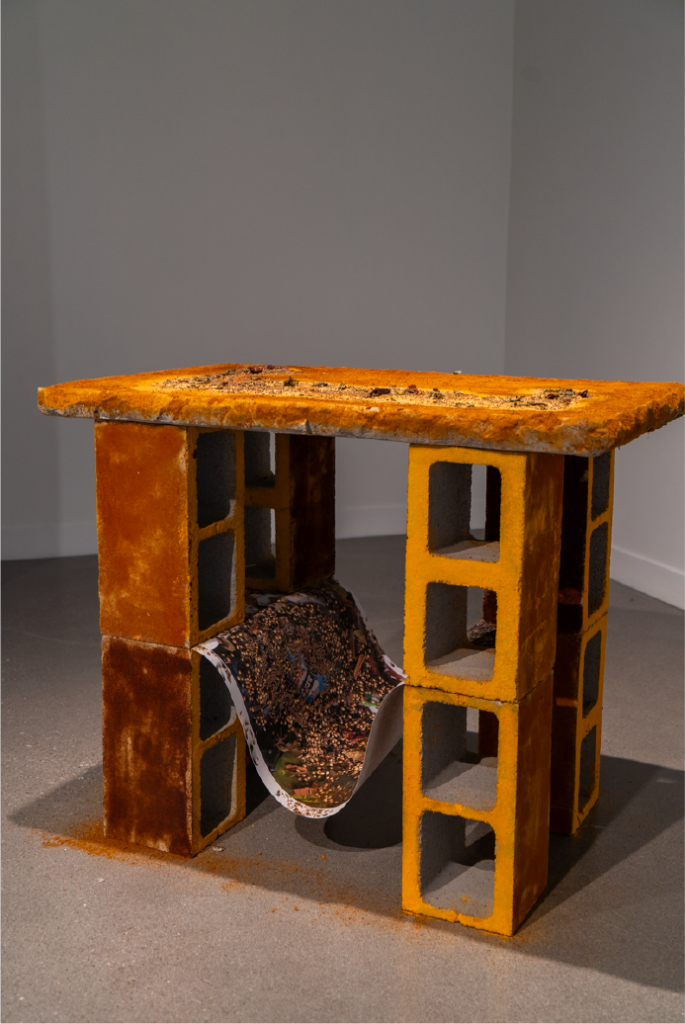Who Says You Can’t Go Home

Yashoda Latkar
Exhibition: May 3 – 31, 2024
Opening Reception: Friday, May 3, 5-8 pm.
A Migrant’s Table Performance: Friday, May 3, 6pm
Sanitary Tortilla Factory is pleased to present Who Says You Can’t Go Home, an exhibition of new works by New Mexico State University’s College of Fine Art MFA Candidate and Sanitary Tortilla Factory’s 2024 Exceptional Visual Artist Scholar Yashoda Latkar. The exhibition, “Who Says You Can’t Go Home,” is a deeply personal and introspective journey into the complex interplay between migration, identity, and the quest for home. Through a diverse range of mediums, including photography, video, ceramics, and installation art, this body of work explores the notion of ‘home’ as both a tangible space and a psychological construct. Drawing upon her own experiences as an immigrant from Mumbai, India, to the United States, the exhibition delves into the persistent search for ‘home’ and the ever-evolving sense of Belonging.
The central theme of this exhibition revolves around the concept of ‘home’ and how it evolves through the process of migration and cultural displacement. As individuals, we often carry with us a deep-rooted connection to our places of origin. The exhibition investigates the multifaceted nature of ‘home,’ shifting from a physical space of shelter to a contested and ambivalent site in the face of displacement. Latkar’s creations in “Who Says You Can’t Go Home” are focused on the experience of living in an in-between space, belonging ‘nowhere,’ embracing the ambivalence even though the sense of being rooted, notions of a permanent home, and traditional routines are challenged.
Yashoda Latkar is the recipient of Sanitary Tortilla Factory’s 2024 Exceptional Visual Artist Scholar (EVAS) award. The EVAS series offers professional space for Master of Fine Art graduate students per year as their final thesis show. The culminating exhibition launches them into their profession as an artist. With the series, we underscore exceptional artists attending regional institutions while highlighting Albuquerque’s innovative connection to contemporary art practices.
Born and brought up in Mumbai, India, Latkar spent most of her life there and deeply identified with her home city, its bustling life, the vibrant street food culture, and the rich smells of spices. However, moving to New Mexico challenged every aspect of her identity. Nothing felt familiar, and suddenly, she found herself belonging nowhere. Her artistic narrative is rooted in this profound transformation, navigating between ‘there’ and ‘here,’ and building a new sense of self in a foreign land. As a migrant, the search for home is ongoing because one is constantly trying to make sense of their surrounding place. Latkar’s work is a mediation of these exact conscious efforts to belong and the desire to locate.
Opening night performance ‘A Migrant’s Table’ by Yashoda Latkar
In my creative practice, I explore the relationship between migration and identity, and my
constant search for home persists throughout my different bodies of work. I engage in the
fundamental question of where and what home is. In my work, I renegotiate the boundaries and
borders of ‘home’ by using self-portraitures, photographs of my family members and family
home, mixed media spiced-infused installations, and performative videos. My creations are
focused on the experience of living in an in-between space, belonging ‘nowhere,’ and embracing
the ambivalence even though the sense of being rooted, notions of a permanent home, and
traditional routines are challenged.

In my work “A Migrant’s Table” I create an installation using cinderblocks covered with
ground spices. Each side of the cinderblock is immersed in ground turmeric, cumin-coriander
seeds powder, and a special kind of mix of spices local to my community in India. The
cinderblocks are arranged in a shape of a table. As one enters the installation space, it is difficult
to escape the strong smell of spices. The aroma takes me back to my home in India, where it is
difficult to get away from the cooking smells. The walls of houses, the clothes, and even the
pores of one’s skin seep this smell.
As an immigrant, my sense of being and belonging are pulled in multiple directions
resulting in a state of flux. I (re)construct the fragments of my identity by using food,
predominantly spices in various forms. I move beyond the discussion of taste and investigate the
idea of experiencing food through multiple senses. My work includes multi-sensory cues of
visuals, sounds, textures, and smells that create a familiar home environment. Food, then,
transcends time and space.
